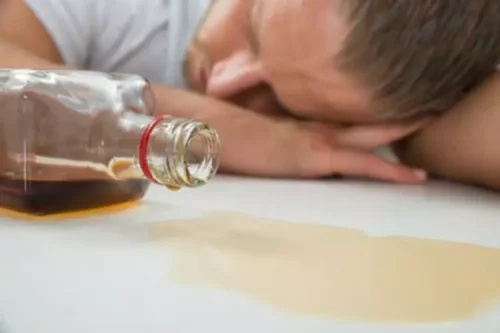
Guilt and shame in addiction recovery are some of the biggest hurdles that addicts will face. Some turn to perfectionism, trying https://ecosoberhouse.com/ to ensure that everything they do is without fault and above reproach. Others struggle with low self-esteem and may seem to have an incredibly people-pleasing personality. Shame can be caused by a wide range of factors — such as trauma or challenging social environments — and often causes feelings of deep inadequacy, lack of worth and the need to hide.
Addiction Treatment Programs

Your prefrontal cortex and posterior insula work together to create the experience of shame. Since those two parts of your brain are part of the limbic system, the experience of shame is connected to the autonomic nervous system (involuntary physiological processes). Shame, as defined by the dictionary, is a painful emotion arising from the awareness that you or someone else has done something wrong. While it Alcohol Use Disorder may seem similar to guilt, shame goes deeper, affecting how we perceive ourselves and how we believe others see us. Unlike guilt, which is often tied to specific actions, shame is more about our self-perception and identity.
The Power of Detox: Breaking the Cycle of Alcohol Dependence
This shift is critical in empowering individuals to see their worth and potential. Having positive relationships is crucial for those in recovery from addiction. Surrounding oneself with supportive individuals can significantly enhance emotional well-being and bolsters motivation to stay sober.
- These activities can improve your self-esteem and reduce negative self-perception.
- Our dedicated admissions team can assist you in verifying your insurance coverage and exploring payment options.
- Engage in mindfulness meditation or other mindfulness practices to increase awareness of the present moment and reduce rumination on past mistakes.
- Hadiah is a counselor who is passionate about supporting individuals on their journey towards mental well-being.
Family-Based Interventions
- Sharing in a supportive environment, such as therapy sessions, support groups, or with trusted loved ones, can provide you with perspective and validation.
- These programs provide ongoing support from peers who have gone through similar experiences and share similar goals.
- This situation becomes even more dangerous when substance abuse is a factor.
- By releasing feelings of guilt and shame, individuals can experience a sense of freedom and empowerment, allowing them to focus on creating a positive future.
This distinction between guilt and shame is crucial because while guilt can motivate us to make amends, shame can often linger, impacting our self-esteem and how we interact with others. Understanding this difference can help us navigate these emotions more effectively and work toward personal growth. Family-based interventions and family counseling not only benefit individuals in recovery but also contribute to the healing and growth of the entire family unit. One impactful therapeutic approach involves fostering self-compassion and reducing self-criticism. By encouraging individuals to treat themselves with kindness and understanding, therapists help to create a foundation of self-acceptance and forgiveness. This shift in perspective enables individuals to let go of the burdens of shame and guilt, allowing them to embrace their journey towards recovery with openness and vulnerability.

The Benefits of Mindfulness in Addiction Recovery

Individuals may find it difficult to recognize their progress, which may lead to self-sabotage and feelings of isolation. Instead of being haunted by negative self-talk, fostering self-empathy allows for healthier emotional processing. It reduces the grip that shame may have on one’s mindset, encouraging a more forgiving and understanding guilt in recovery view of oneself. Guilt and shame are emotions that play significant roles in the recovery journey.
